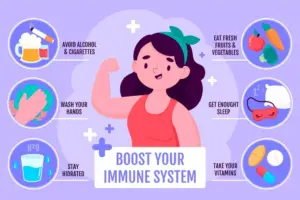Gastro-oesophageal reflux disease (GERD) is a condition where stomach acid frequently flows back into the oesophagus, causing discomfort and damage.
There are two main types of GERD: non-erosive reflux disease (NERD) and erosive reflux disease (ERD).
NERD is characterized by symptoms such as heartburn and acid regurgitation, while ERD is characterized by symptoms such as heartburn and visible damage to the oesophagus.
Causes of GERD include lifestyle factors such as diet (especially foods high in fat, caffeine, and alcohol), being overweight, smoking, and certain medications. Other medical conditions can also cause GERD, such as hiatal hernia, pregnancy, and diabetes.
Symptoms of GERD include heartburn, acid reflux, and difficulty swallowing.
Diagnosis of GERD is typically made based on a person’s symptoms and may be confirmed with tests such as an upper endoscopy or pH monitoring.
Treatment for GERD includes lifestyle changes such as avoiding triggers, eating smaller meals, and losing weight, as well as over-the-counter medications such as antacids and acid reducers. In more severe cases, prescription medications may be necessary. In some cases, surgery may be recommended to strengthen the muscle between the stomach and oesophagus to prevent acid reflux.
To discuss diagnosis and treatment options, please book an appointment with our specialist.
To learn more about heartburns, please click on:
Dr Ibrahim Yahli MD MRCPsych



